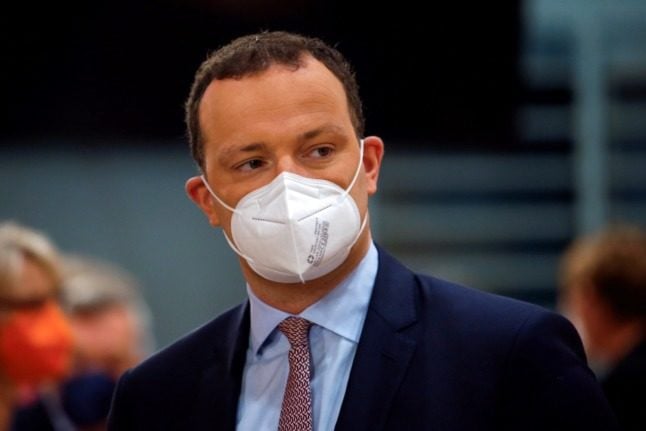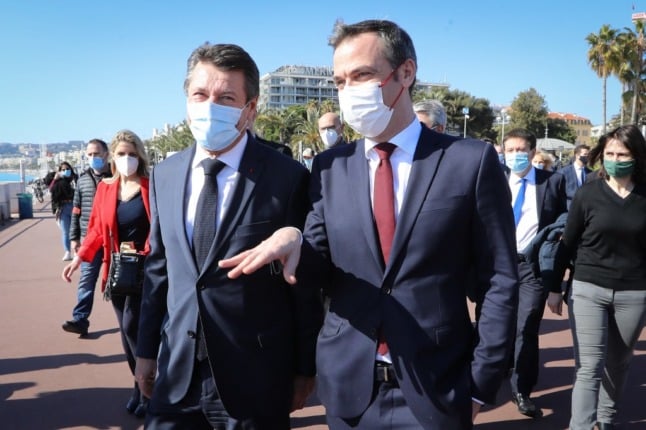In recent days, calls have been growing louder for Germany to drop more Covid restrictions – such as mandatory masks – for vaccinated people.
But Health Minister Spahn said he believes wearing masks will remain compulsory in Germany in the coming autumn and winter – at least in indoor public spaces.
“(Wearing) masks indoors, especially if there are several people in an indoor area in autumn and winter, they will be needed again, that is very clear,” the CDU politician told broadcaster ARD on Wednesday.
“But I think that compared to all the restrictions, wearing a mask is still the most harmless,” Spahn continued.
READ ALSO: German Foreign Minister joins calls to relax rules for vaccinated people
Mandatory face masks were brought in across Germany in April 2020. The rules were tightened to deal with the worsening Covid situation. Masks became mandatory in certain busy streets outdoors in many areas of Germany during the second wave.
Across the country, medical masks, such as the FFP2 models, which provide more protection than cloth masks, became compulsory on public transport and in shops in January 2021.
In June, German states began easing some rules on mask wearing, particularly outdoors.
But masks remain contentious. People protesting against Covid restrictions have continually flouted mask and distance rules during large and frequent demonstrations, leading to pushback from the police.
A recent poll found almost half of Germans want to continue wearing masks after the pandemic to protect against diseases.
‘We need basic measures’
The Health Minister made it clear that there will continue to be advantages for vaccinated people when it comes to Covid measures.
Germany eased many restrictions – such as quarantine orders and contact rules – for fully vaccinated people back in May.
“But we will certainly need the basic measures… and that includes masks, in certain areas for quite some time,” Spahn explained.
He also mentioned other measures including distance, hygiene and regular ventilation.
READ ALSO: German medical chief calls for end of Covid measures for vaccinated people
Those who want to get back to enjoying normal activities in the coming months should get vaccinated, Spahn made clear.
“Anyone who wants to be able to do a lot again, from going to stadiums to parties, to family gatherings to everyday work with a lot of safety, should get vaccinated,” he said.



 Please whitelist us to continue reading.
Please whitelist us to continue reading.
Member comments